ELECTED MEMBERS
Suchismita (Suchi) Banerjee, NTT Faculty Representative, Indian River State College, Fort Pierce, FL (2025–2028)
Antonio Byrd, At-Large Member, University of Missouri–Kansas City (2025–2028)
Tiane Donahue, Standing Group Representative, Dartmouth College, NH (2025–2028)
Mellissa Gyimah, Standing Group Representative, Judson University, Elgin, IL (2024–2027)
Tommy Mayberry, NTT Faculty Representative, Yorkville University and Toronto Film School, Canada (2024–2027)
Federico Navarro, Standing Group Representative, Universidad de O’Higgins, Chile (2025–2028)
Kate L. Pantelides, Standing Group Representative, Middle Tennessee State University, Murfreesboro (2024–2027)
Jason Tham, At-Large Member, Texas Tech University, Lubbock (2025–2028)
CULTURAL IDENTITY CAUCUS MEMBERS
American Indian Caucus
Emily Legg, Miami University, Oxford, OH (2025–2026)
Arab/Muslim Caucus
Soha Youssef, Thomas Jefferson University, Philadelphia, PA (2024–2027)
Asian/Asian-American Caucus
Xiaobo Wang, Sam Houston State University, Huntsville, TX (2025–2028)
Black Caucus
Marcelle Mentor, Teachers College, Columbia University, NY (2025–2028)
Jewish Caucus
Chaim McNamee, Indiana University in Bloomington (2023–2026)
Latinx Caucus
Consuelo Salas, San Diego State University, CA (2024–2027)
Queer Caucus
Gavin P. Johnson, Texas A&M University-Commerce (2024–2027)
GRADUATE STUDENT MEMBER
Purna Chandra Bhusal, University of Texas at EL Paso (2024–2027)
Corie Mesa, California State University, Northridge (2025–2026)
ACCOUNTABILITY FOR EQUITY AND INCLUSION COMMITTEE (AEIC) MEMBER
Xuan Jiang, Florida International University, Miami (2025–2027)
COMMITTEE ON DISABILITY ISSUES IN COLLEGE COMPOSITION (CDICC) MEMBER
Ada Hubrig, Sam Houston State University, Huntsville, TX (2023–2026)
EX OFFICIO
Kimberly Bain, Palm Beach Atlantic University, West Palm Beach, FL (2024–2027)
FORUM Editor
Matthew Davis, University of Massachusetts Boston (2024–2029)
CCC Co-Editor
Joanne Baird Giordano, Salt Lake Community College, UT (2021–2026)
TYCA Chair (2022–2024; appointed 2025–2026)
Darin Jensen, Des Moines Community College, IA (2020–2026)
TETYC Editor
Emily Kirkpatrick, NCTE Executive Director
Executive Secretary-Treasurer
Stephanie L. Kerschbaum, University of Washington, Seattle (2022–2027)
SWR Editor
Stephanie Dowdle Maenhardt, Salt Lake Community College, UT (2025–2026)
TYCA Associate Chair
Bethany E. Sweeney, Ridgewater College, Hutchinson, MN (2023–2026)
TYCA Secretary
Kara Taczak, University of Central Florida, Orlando (2024–2029)
CCC Co-Editor
PARLIAMENTARIAN
Christina Saidy, Arizona State University, Tempe (2023–2026)
A complete listing of CCCC Chairs from 1949 to the present
CCCC Officers and Executive Committee from 1994 to the present
 In addition, you might be interested in a related resource on this topic that was recently published by NCTE, College Credit for Writing in High School: The “Taking Care of” Business by Kristine Hansen and Christine R. Farris (with a Foreword by David A. Jolliffe and Afterword by Douglas Hesse).
In addition, you might be interested in a related resource on this topic that was recently published by NCTE, College Credit for Writing in High School: The “Taking Care of” Business by Kristine Hansen and Christine R. Farris (with a Foreword by David A. Jolliffe and Afterword by Douglas Hesse). 
 No matter where we teach, whether we are full-time or part-time, all of us encounter issues and challenges in our work lives. Compensation, employment status, program structures, teaching loads, assessment, staffing . . . the list is long.
No matter where we teach, whether we are full-time or part-time, all of us encounter issues and challenges in our work lives. Compensation, employment status, program structures, teaching loads, assessment, staffing . . . the list is long.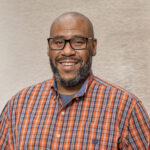
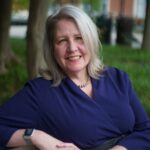
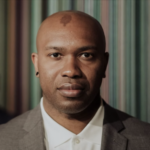
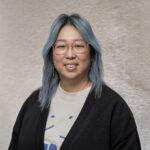
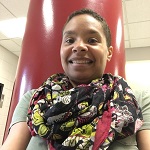



 (Note: this is a large PDF file and may take several minutes to open)
(Note: this is a large PDF file and may take several minutes to open)
 (Note: this is a large PDF file and may take several minutes to open)
(Note: this is a large PDF file and may take several minutes to open) A conversation with Chase Bollig, author of
A conversation with Chase Bollig, author of  Chase Bollig is an assistant professor at Gonzaga University. As a self-proclaimed “working-class PhD,” Bollig researches rhetoric, composition, literacy, and their intersections with class politics.
Chase Bollig is an assistant professor at Gonzaga University. As a self-proclaimed “working-class PhD,” Bollig researches rhetoric, composition, literacy, and their intersections with class politics. Heather Bastian is the associate director of the Communication Across the Curriculum (CxC) program at the University of North Carolina–Charlotte. Her research interests include genre studies, composition pedagogy, and writing program administration. Her work has appeared in the WPA Journal, Composition Studies, Composition Forum, Across the Disciplines, and Reader.
Heather Bastian is the associate director of the Communication Across the Curriculum (CxC) program at the University of North Carolina–Charlotte. Her research interests include genre studies, composition pedagogy, and writing program administration. Her work has appeared in the WPA Journal, Composition Studies, Composition Forum, Across the Disciplines, and Reader.